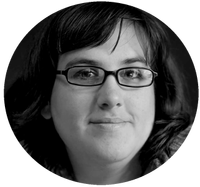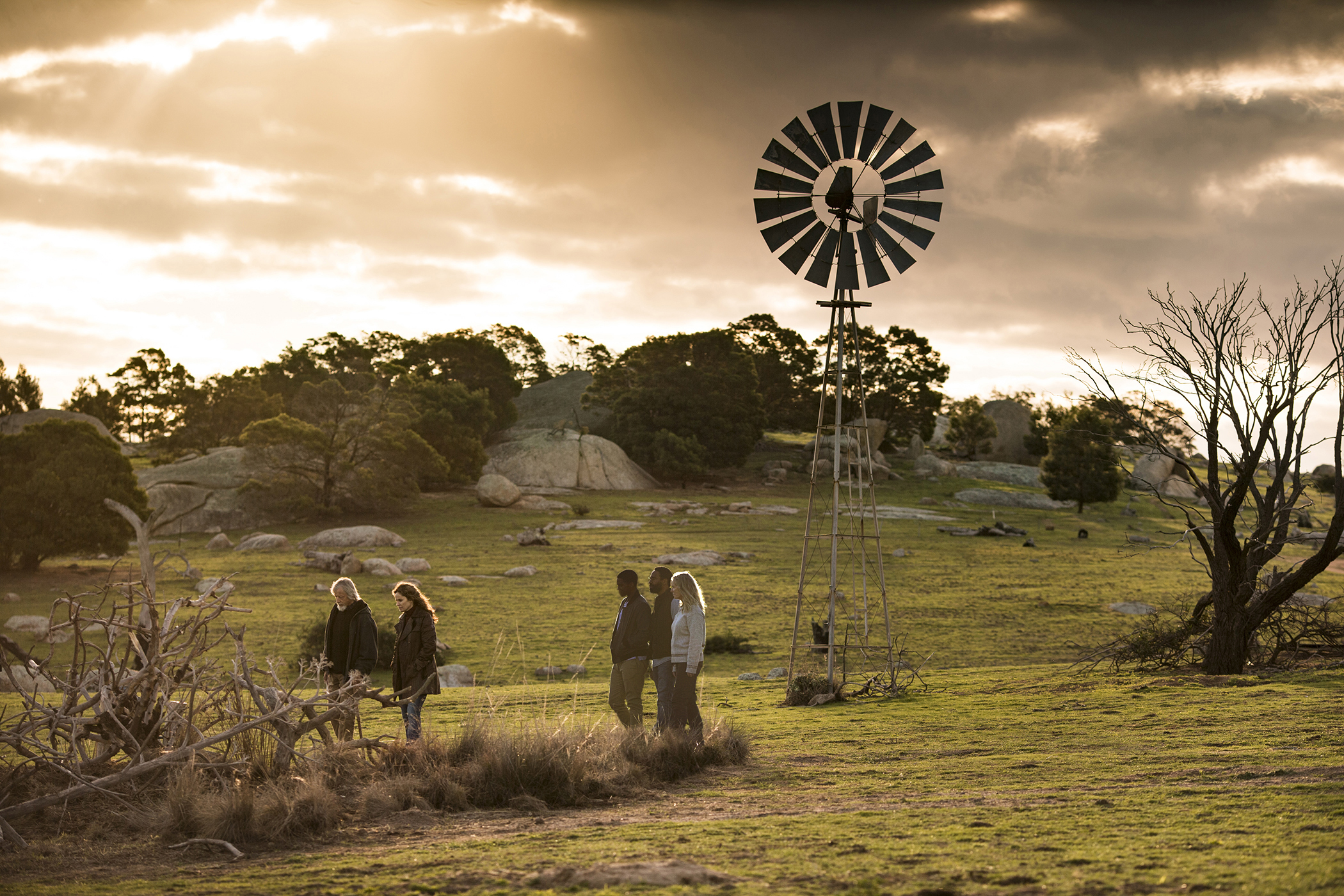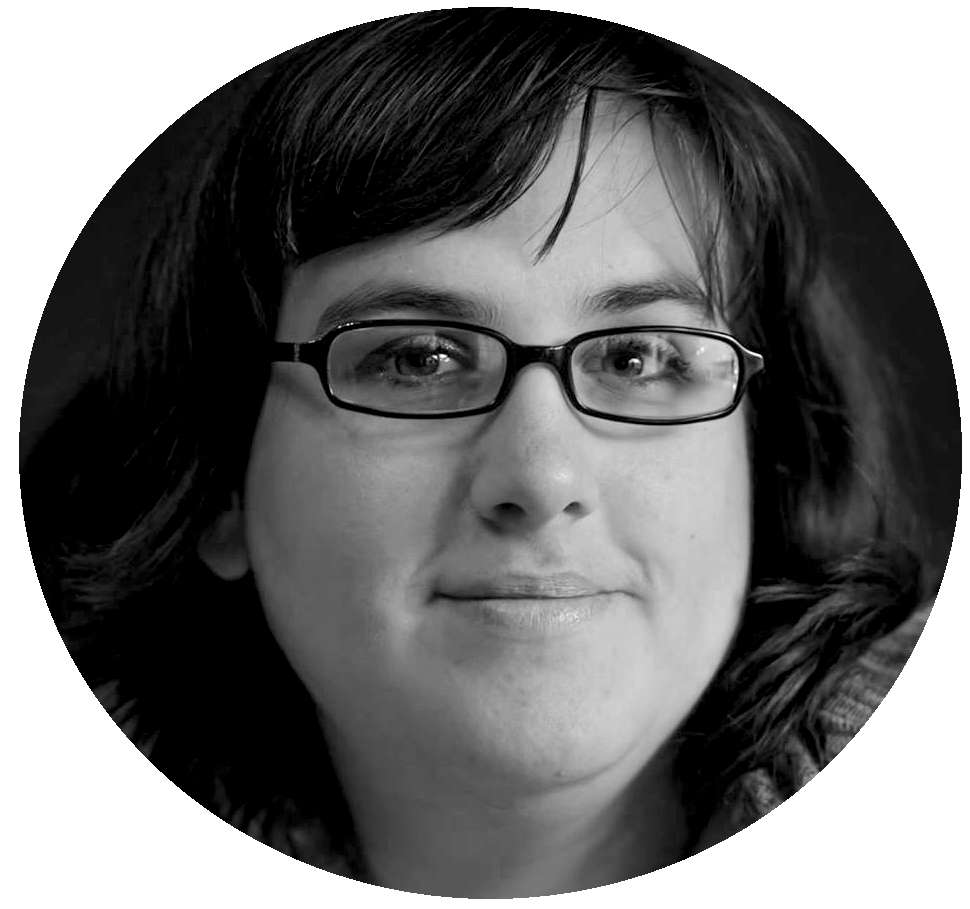The Leftovers just reminded us all that it is a staggeringly sad show
In "Certified," Laurie becomes Judas


A free daily email with the biggest news stories of the day – and the best features from TheWeek.com
You are now subscribed
Your newsletter sign-up was successful
The question of why Judas hanged himself has never been the deepest, most devastating question in theology. The common answer is that those 30 pieces of silver couldn't buy him peace of mind, help him escape his shame. Toward the end of "Certified," Laurie Garvey (Amy Brenneman) compares herself to Judas — just after Kevin Senior confronts her for having him committed, and right before she confesses to spiking the stew, and her husband, stepson, and former father-in-law slump over in their seats — but she is not ashamed of what she's done. She dispatches the apostles so she can have a moment alone with Kevin Junior; not so she can argue him out of trying to die (again). She doesn't want to analyze him; she wants to simply sit with him and be, however briefly, two people who loved each other once.
The Leftovers has treated Laurie's career as a psychologist as a source of gut-punching satire (particularly in season one, where she trades one "cult" for another). More recently, it's served as practical ballast against the show's ethereal weirdness (the strained politeness between Laurie and Kevin Senior perfectly exemplifies this tension, especially his clipped insistence on using her full name, Lorelai); and a reminder that, for all the divine terrors and wonders of our world (and perhaps the world beyond it), the greatest mysteries are found in the human heart and mind. But "Certified" is the first episode that explicitly asks what it feels like to be Laurie, a woman of science, surrounded by people who believe that the right song, sung at the right time, and in the right place, can avert the end of days. If she is a Judas, her betrayal is simply a refusal to believe that a global catharsis could ever be so easy.
After all, Kevin's way of saving the world means that he doesn't have to engage with it — he quite literally gets to go somewhere else, become someone else. The cold opening of "Certified" establishes, with an acidic bleakness that is startling, even for The Leftovers, that Laurie's role as a healer forced her to sit with the real pain of life post-Departure in ways the other characters simply haven't had to. She watches her patient weep bitterly, describing her struggles with infertility and how she lost her miracle baby when he Departed from his car seat. Fans will recognize this woman from the opening moments of the pilot episode; her story is a personal microcosm of the terror and desperation occurring across the globe (the sound of her voice, screaming her son's name, joining with so many other voices screaming so many other names, is almost unbearable).
The Week
Escape your echo chamber. Get the facts behind the news, plus analysis from multiple perspectives.

Sign up for The Week's Free Newsletters
From our morning news briefing to a weekly Good News Newsletter, get the best of The Week delivered directly to your inbox.
From our morning news briefing to a weekly Good News Newsletter, get the best of The Week delivered directly to your inbox.
As the patient breaks down openly, messily, Laurie breaks down silently, internally — though the show's other actors have gotten big, audacious set-pieces like Matt Jamison's lion sex party or Nora Durst's inquisition by the LADR physicists, Amy Brenneman's canvas is smaller and subtler; she conveys the full magnitude of hearing stories just like this one, day in, day out, by letting her eyes fade into a waxen deadness. The intelligent receptivity of her face slowly recedes, replaced with nothing, mute and dull as a stone. "Tell me what to f—king do," the woman screams. All Laurie can say is, "I don't know." Her patient takes this as a betrayal of the therapist's vow to give order and meaning to the world — but it is the truth. Some losses are insurmountable. Some woes can't be cured.
Laurie needed to provide that order and meaning as much as her patients needed to receive it; the doubt that will undo her is not the spiritual kind of doubt that Kevin Senior chides her for, or that estranges her from John and Michael — it is doubt in her purpose. This doubt will compel her to swallow several handfuls of pills; she stumbles through her big, impressive house in her sharp, impressive business-wear, as a chilling plucked-string rendition of Metallica's "Wherever I May Roam" follows her. But Laurie is not yet ready for the great unknown "anywhere" described in the song; after she forces herself to vomit up the pills, she dons the white of the Guilty Remnant. If everyone else views the Departure as a grand betrayal, a knife-in-the-back of the order of things, then the GR grips the blade between the palms of its hands, embraces the pain.
Though "Certified" doesn't linger on Laurie's conversion to the nihilistic death cult, it's still one of the show's most staggeringly sad episodes (frankly, I'd place it behind "Gladys," which occupies my personal top spot of ultimate bummers for its opening sequence alone). The narrative toggles between Laurie's final moments with her family on Grace's farm, and her quest to help Nora Durst track down the LADR physicists. Brenneman and Coon masterfully play up the women's friction and unlikely, yet soul-deep, familiarity — Laurie may put on her calmest, most shrink-like voice when she calls the LADR device "a suicide machine," but Nora tartly reminds her that she is the same woman who once put "blow-up dolls of my children in my house." Nora half-taunts, half-baits Laurie with a description of the perfect, most guilt-free suicide — faking an accident while scuba diving — because she recognizes their kinship in oblivion. Laurie's response, that she's a certified diver, only confirms that recognition.
Joining Nora's mission may be a deliberate act of atonement (much of the episode feels like Laurie putting her affairs in order); a way of weaponizing her I'm-well-now smugness against a rival who is so obviously not well (and Nora's chain-smoking all but telegraphs that if the GR were still around, she might be a new recruit); or a last chance to genuinely help someone, and fulfill that "betrayed" pledge to restore order and meaning to the world. In previous episodes, Nora's beliefs about whether LADR would really work seemed dubious at best; the device was more of a fulcrum for her mental health — would she atomize herself for the respite of death alone? Or did some hidden part of her think she'd find her children at some kitchen table in the Great Beyond? "Certified" suggests the latter, or that Nora's death wish has metastasized into true delusion (at least that's what Dr. Laurie Garvey might say). Nora says she doesn't want to die; she wants "f—king closure."
A free daily email with the biggest news stories of the day – and the best features from TheWeek.com
As she stands on an embankment with Laurie and Matt, watching the cargo ship that caries the LADR device slowly sail into the distance, Nora begins to cry, hard and loud, like Laurie's patient in the cold open. She talks about the first good memory she had after her parents' deaths; staring, enraptured, at some guys tossing a beach ball through the stands at a baseball game. The beach ball sailed over the crowd, merrily bopped along in a communal reverie — until an usher came along and squeezed the air out of it. "Who would want that job?" Nora sobs. Who would want to be that arctic logician, that Judas of fun? "If somebody doesn't do it," Laurie says. "The ball goes into the field and its f—king chaos." Then she embraces Nora until Nora's tears mellow, become more about catharsis. With those few precious words, she gifts Nora with a semblance of meaning, a promise that there can be a reason to something that seems so random and cruel (even if nobody knows what that reason is).
Of course, Laurie is also explaining her own role in the holy-rollings of Kevin and company. She is the usher, squeezing air out of the beach ball of their apostleship, reminding them that the here-and-know is all we have — even if that means that she must live in a world without wonder. Laurie is no longer a bitter cultist, or the self-styled self-help guru who hides her lingering shame and rage in platitudes of shrink-speak. On the surface, she seems happily balanced with a new life and a new family. But she is trapped in the fathoms of that final session with the grieving mother, trapped in her betrayal, her inability to make things any better, however briefly.
The revelations that came with this "betrayal" will lead Laurie to the perfect suicide that Nora described. Kevin Senior, John, and Michael want to redeem the world; Laurie has listened to so many people who've already lost their worlds, who don't believe that what's been left behind deserves saving. In their last moments together, Laurie asks Kevin if he's afraid to die again. He tells her that he isn't, that he never felt "more alive" or invigorated than when his heart stopped beating. "Then I'm not afraid, either," she says. But she's not talking about his odds of coming back; she's announcing her own intentions. She will not be afraid to sit on the edge of a boat, clad in her scuba gear, and take that final breath before diving backward into the unknown — whether that unknown looks like Kevin's kaleidoscopic dreamscapes or like the Guilty Remnant's vision of black expanse (or somewhere in between).
Laura Bogart is a featured writer for Salon and a regular contributor to DAME magazine. Her work has appeared in The Atlantic, CityLab, The Guardian, SPIN, Complex, IndieWire, GOOD, and Refinery29, among other publications. Her first novel, Don't You Know That I Love You?, is forthcoming from Dzanc.
-
 Why is the Trump administration talking about ‘Western civilization’?
Why is the Trump administration talking about ‘Western civilization’?Talking Points Rubio says Europe, US bonded by religion and ancestry
-
 Quentin Deranque: a student’s death energizes the French far right
Quentin Deranque: a student’s death energizes the French far rightIN THE SPOTLIGHT Reactions to the violent killing of an ultraconservative activist offer a glimpse at the culture wars roiling France ahead of next year’s elections
-
 Secured vs. unsecured loans: how do they differ and which is better?
Secured vs. unsecured loans: how do they differ and which is better?the explainer They are distinguished by the level of risk and the inclusion of collateral
